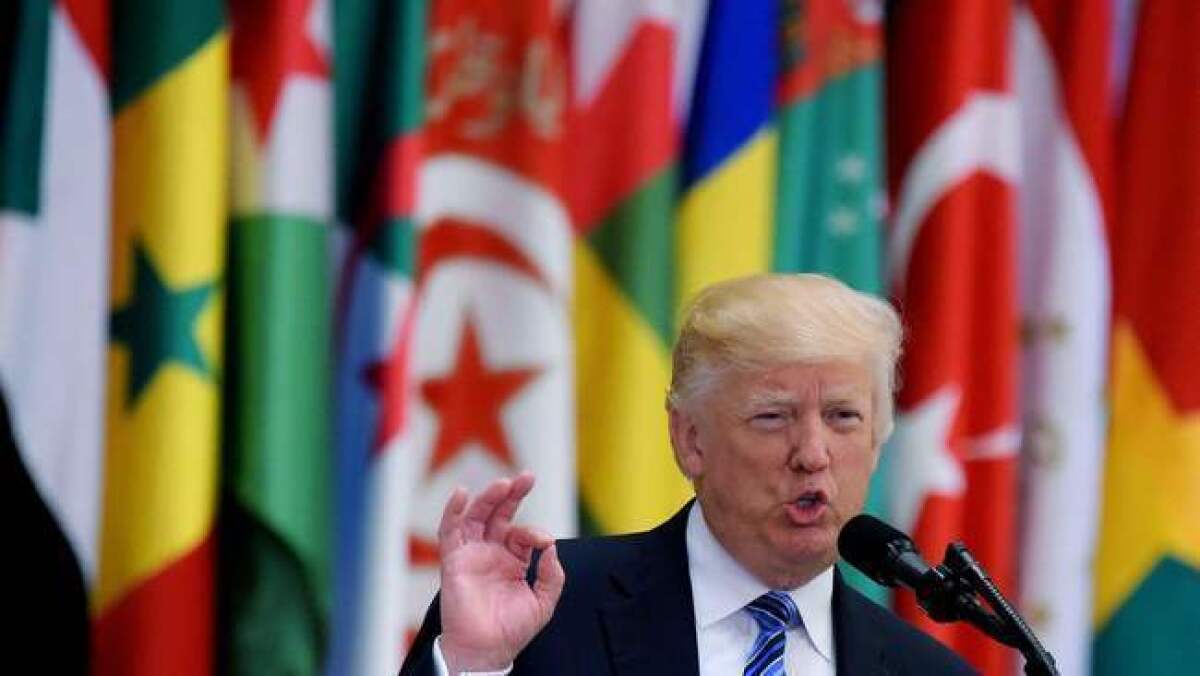Opinion: Radical Islamic terrorism: The dogma that didnāt bark in Trumpās speech

President Trump is receiving generally high marks, even from some of his usual critics, for the speech he delivered Sunday in Saudi Arabia at the Arab Islamic American Summit ā especially for his conciliatory comments toward Islam, which he called āone of the worldās great faiths.ā
Of course, the Twittersphere had a field day contrasting the tone and careful language of the speech with Trumpās previous pronouncements, including his claim in 2016 that āI think Islam hates usā¦. Thereās a tremendous hatred there.ā
And while itās an exaggeration to say that Barack Obama could have given the speech, itās notable that Trump never used the term he excoriated his predecessor -- and Hillary Clinton -- for eschewing.
āThese are radical Islamic terrorists and [Clinton] wonāt even mention the word, and nor will President Obama,ā Trump said at an Oct. 9 debate with his Democratic rival.
Yet Trump also avoided the term āradical Islamic terrorismā in his speech in Riyadh, in which he did declare that āMuslim nations must be willing to take on the burden, if we are going to defeat terrorism and send its wicked ideology into oblivion.ā
His prepared text referred to āthe crisis of Islamist extremism and the Islamist terror groups it inspires.ā (In the speech as delivered, āIslamist terror groupsā turned into āIslamists and Islamic terror of all kinds.)
But Trump never uttered the magic words āradical Islamic terrorism.ā
One speech does not a new policy make. But perhaps Trump has realized why Obama was careful with his language.
In a 2015 editorial, the Los Angeles Times observed that āthe presidentās diplomatic language doesnāt mean heās in denial about either the existence or the popular appeal of radical interpretations of Islam.ā Rather, Obama realized that āportraying the campaign against Islamic State as a war on Islam wouldnāt just be inaccurate; it would be incendiary and self-defeating.ā Obama thought the catchphrase āradical Islamic terrorismā connoted just such a view.
Maybe Trump is groping toward that insight. In any event, he seems to have been persuaded to de-escalate his rhetoric.
Weāll know for sure if heās more careful with his language not just in prepared speeches but in other settings ā including, of course, Twitter.
Follow the Opinion section on Twitter @latimesopinion and Facebook
More to Read
A cure for the common opinion
Get thought-provoking perspectives with our weekly newsletter.
You may occasionally receive promotional content from the Los Angeles Times.











